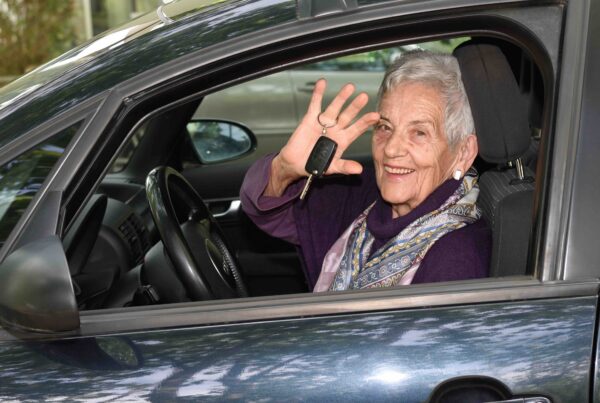Not long after six am on Monday the third of April news began to flow south from Yolngu heartland. The most significant Aboriginal leader of our generation had passed.
His legacy was and will continue to be profound. His passing has weighty implications for our nation and the Gumatj clan he led. It has implications for how we navigate the most transformative agenda of our generation: the 2023 referendum.
The passing of Dr Yunupingu is potentially of greater significance to our nation than our loss last year of her Majesty Queen Elizabeth II.
Following the lead of his father Mangurrawuy, Dr Yunupingu’s first foray onto the national stage was through the presentation of the Yirrkala bark petitions. These documents were the first to recognise the authority of the Australian parliament and the place of Indigenous Australians in Australian law.
But it was Dr Yunupingu’s role in the unsuccessful Gove Land Rights Case that consolidated his growing political authority. He challenged the right of mining companies to exploit traditional lands. He went after a legal settlement with mining companies that empowered Indigenous Australians and created an institutional framework for our economic development.
His skills as a negotiator were further reinforced through the creation of Australia’s first land rights legislation in 1974. He was a member of the Northern Land Council from 1975. He was its chair from 1977-1980.
At a recent Garma forum Dr Yunupingu continued to make the case for reform of Northern Territory Land rights. He argued that land rights needed to “woken up”. Reforms were needed to create security of title that enabled Indigenous Australians to fully participate in the global economy.
Dr Yunupingu never once resiled from his position on the role of NT land rights as the basis for protecting the cultural rights of Aboriginal peoples. But neither did he resile from his position on economic rights. This foreshadowed the policy debates that followed in the legal recognition of native title following the Mabo High Court Case in 1992.
In 2022 he pushed his legal agenda much further. Dr Yunupingu instructed his lawyers to lodge a Federal Court case to claim up to $700 million over a Gove Peninsula mine approved in the 1960s. Depending on the outcomes of this case it will have a revolutionary impact on native title law and policy.
It was in his later years that Dr Yunupingu’s power as a policy leader really came to the fore and consolidated his legacy.
From 2007 he lent his authority to a process that transformed the Garma Festival. He built on its foundation as a cultural festival but transformed it into the most significant Indigenous political event in the calendar. It is an understatement to say that Garma has become the Australian Indigenous Davos. He laid out this vision in 2007 at a speech at the University of Melbourne.
For twenty years up to four thousand national leaders have converged on the ceremonial grounds of the Gumatj. They participate in cultural exchange and policy debate.
Everyone from Prime Ministers, business leaders and cultural leaders join Indigenous leaders to map future policy agendas. It was here that strategies to Close the Gap; promote Indigenous reconciliation and constitutional reform were contested.
Dr Yunupingu was the first Indigenous leader who responded to Prime Minister Howard’s call in 2007 for the recognition of Indigenous Australians in the Australian constitution.
He argued that constitutional reform should not be narrowly symbolic. He made the case that it should strengthen Indigenous rights and Australia’s response to Indigenous disadvantage.
This created the platform which led to the Uluru’s Statement from the Heart at a meeting of Indigenous leaders in 2017. Voice Treaty and Truth emerged as united platform for change. A powerful moment – it set an agenda for change to improve the lives of Indigenous Australians.
In 2015 the University of Melbourne conferred Dr Yunupingu with an honorary Doctor of Laws on the ceremony ground at Garma. I watched Indigenous leaders and academics process past Yolgnu dancers. Academic robes with designs dating from medieval Europe contrasted exquisitely with Yolngu colours and designs. Tears flowed. It was a humbling moment that transcended time.
As we collectively mourn the loss of this great man it will be challenging for Yolgnu and all of us. Particularly as we move forward to a referendum for constitutional enshrinement of the Voice to Parliament.
We should not expect the 2023 Garma festival to be the place where we converge ahead of a referendum vote. If it does go ahead, we might expect that it will be an event focussed on memorialisation of Dr Yunupingu.
We can expect several months of ritual traditions in the North. Some of these will be shielded from external eyes. Some of which will be open for participation by national leaders. An invitation to participate is not a matter to be delegated. Cultural protocols are not open for negotiation.
In the North the transfer of power across generations is neither straight forward nor interlocked with the rhythms of political transitions in the western world. It will emerge in its own time.
It is critical that we all understand what is now in front of us and respect the traditions of the north as they unfold.
The greatest sadness of this moment is that Dr Yunupingu will not live to witness the Australian people vote yes in the 2023 referendum.
This is what he stood for his entire life.
As a palawa leader I look forward to a future Australia that truly recognises the impact that great Australians, like Dr Yunupingu, have had on our nation.
takila-mana-mapali putiya nayri, putiya nayri krakapaka-ta Yunupingu
waranta tangara Yunupingu; (but) waranta kanaplila-ngayapi-nara
nara Gumatj waypa rrala; takariliya Gumatj; milaythina Gumatj
takamuna rrala; kani rrala; liyini rrala
krakani nayri, Yunupingu. tapilti nayri Gumatj Ngini
waranta taymi tunapri nina
View the translation:
Our hearts are extremely/very sad with the passing of Yunupingu.
We weep bitterly; but we also celebrate his life. He stood strong (for his people and country); spoke up (for his people and country); and sang up strong (for his people and country)
Rest well, Yunupingu. Travel well to your Old People
We will never forget you.
Professor Ian Anderson is Palawa & Deputy Vice Chancellor (Academic) for the University of Tasmania.
First published in Pearls and Irritations on 5 April 2023



